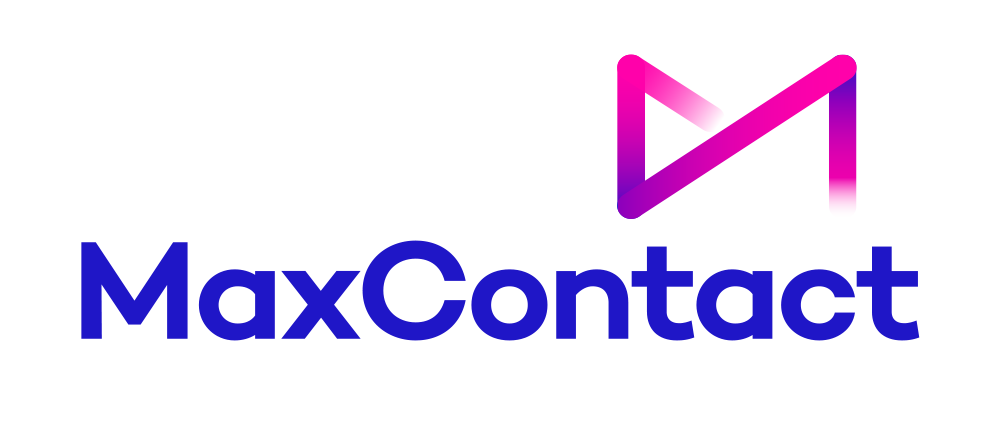What is After Call Work and How to Reduce it?
During a typical working day, call centre agents work tirelessly and juggle a range of responsibilities. They handle phone calls, respond to emails, and provide support across multiple channels. Most people assume that a call centre agent finishes their work as soon as the customer hangs up the phone, but this isn’t the case.
After speaking with a customer, agents must complete a series of steps before they can fully wrap up the call. This typically involves tasks such as updating customer records, logging call details, scheduling follow-up actions, and sending confirmation emails or feedback forms. These steps are called after-call work, and they are an important part of Average Handle Time.
In this blog, we’ll explore everything you need to know about after-call work (ACW). What it is, why it’s important, including practical tips and tricks on how to reduce it.
What is After-call work?
After-call work (ACW) is the tasks that a call centre agent must complete immediately after finishing a customer interaction. These post-call responsibilities mean that customer records are kept up to date, allowing for a smooth follow-up process. While ACW doesn't involve direct customer contact, it's an important part of keeping efficient service and accurate reporting within a contact centre.
The time between the end of one customer interaction and when an agent is ready to handle the next is known as after-call work (ACW) time. This period allows agents to complete any necessary follow-up tasks related to the previous call.
Understanding the ACW Formula
It is important to first understand how the ACW formula is calculated. This knowledge will help you decide whether ACW is a focus for your team or if other KPIs are more important.
Why Is After-Call Work Important?
While ACW might seem like an administrative task, its impact is extensive across both operational and customer-focused aspects of the business. Service teams have to deal with hundreds of customer calls daily. Here are some of the reasons why it matters:
- Accurate Record Keeping: After-call work makes sure that all relevant details are logged, creating a history of customer interactions. This helps future agents pick up where the last one left off.
- Meeting Regulatory Requirements: In industries like finance, healthcare, or telecommunications, compliance often requires that all customer interactions be properly documented. Failing to complete ACW accurately could lead to legal issues.
- Improved Customer Experience: When ACW is done properly, agents can handle follow-up calls, meaning that customers don't have to repeat themselves, thus improving customer satisfaction.
- Data for Analytics: The information gathered during ACW can be used for performance analysis, process improvement, and identifying common customer pain points.
How Does After-Call Work Affect Certain Performance Metrics?
ACW has a direct effect on several important key performance indicators (KPIs) in a contact centre. These KPIs include:
Average Handle Time (AHT): AHT includes both the talk time and after-call work time. If ACW is too long, it directly increases AHT, which can impact overall performance and customer service metrics.
First Call Resolution (FCR): Long or incomplete ACW can result in the need for follow-up calls, which reduces the likelihood of resolving issues on the first contact. Good ACW means problems are fully addressed, improving FCR.
Customer Satisfaction (CSAT): Customers who do not have to call back multiple times due to incomplete case handling are more likely to report higher satisfaction levels.
Agent Usage: If agents spend too much time on after-call tasks, they may not be able to take calls quickly. This can lead to higher idle times and lower productivity.
ACW Benchmark Numbers by Industry
After-call work (ACW) times can vary depending on the type of contact centre and the complexity of customer interactions. While there’s no universal standard, understanding ACW benchmarks across industries can help you assess whether your team is performing within a reasonable range. Here’s a breakdown of average ACW durations by industry:
- Telecommunications: Average ACW: 30–60 seconds
Telecom agents often handle account queries, technical support, and service changes. Systems are usually integrated, allowing for quicker updates. - Retail & E-commerce: Average ACW: 40–70 seconds
Calls may involve order tracking, returns, or product inquiries. While less technical than other sectors, agents still need time to log details and issue confirmations or follow-ups. - Banking & Financial Services: Average ACW: 60–120 seconds
Due to regulatory requirements and sensitive customer data, agents must complete thorough documentation. Compliance and accuracy are top priorities, which naturally increase ACW time. - Healthcare & Insurance: Average ACW: 90–150 seconds
These industries often involve complex cases, privacy regulations (e.g., HIPAA), and coordination with other departments. Agents may need to update multiple systems or trigger follow-up actions. - Travel & Hospitality: Average ACW: 45–90 seconds
Bookings, cancellations, and itinerary changes require agents to make several updates post-call. Even with well-integrated systems, the nature of inquiries still demands careful follow-through. - Technical Support (IT or SaaS): Average ACW: 60–120 seconds
Technical calls usually require detailed notes, ticket creation, or escalation procedures. Agents may also need to send summary emails or updates to the user.
Why Benchmarks Matter
Knowing the average ACW time in your sector helps you set realistic goals and identify areas for improvement. However, benchmarks should be used as a guide, not a strict target. It’s more important to focus on the quality of post-call work and the consistency of your processes.
If your ACW time is significantly higher than your industry average, it may be a sign that your tools or workflows need updating or that agents require additional training.
Tips to Reduce After-Call Work in Call Centres
Reducing after-call work isn’t about rushing agents or cutting corners; it’s about creating smarter, more structured processes that reduce unnecessary steps. By improving the way calls are handled, equipping teams with the right tools, and regularly reviewing procedures, contact centres can lower ACW time without compromising service quality. Below are several proven strategies to help reduce ACW and improve the overall workflow for your agents.
1. Improve Call Handling Procedures
One way to cut down on ACW is to focus on handling calls effectively from the outset. When agents manage customer queries more clearly and directly during the call, there’s often less work required afterwards. Simplifying the steps involved in resolving issues can noticeably reduce the time agents spend on follow-up tasks.
2. Advanced Tools and Technology
Modern contact centres use customer relationship management (CRM) systems, call logging tools, and automation software that can simplify post-call tasks. For example, AI-powered chatbots can automatically tag calls based on keywords or sentiment, and speech recognition technology can transcribe calls in real-time, reducing the need for manual note-taking.
3. Automate Routine Tasks
Automating repetitive tasks, such as updating records, categorising calls, and sending follow-up emails, can save agents valuable time. By using automation, you can ensure that these tasks are completed correctly without requiring manual input from agents, allowing them to focus on more complex customer interactions.
4. Provide Clear Call Guidelines
Clear guidelines and structured scripts can help agents handle calls. When agents know exactly what information they need to capture, they can handle calls faster and complete ACW more quickly. A well-defined process reduces errors and omissions that require additional follow-up.
5. Offer Training and Support
Regular training on how to complete ACW can make a big difference. By helping agents understand how to streamline their ACW without sacrificing accuracy, businesses can reduce post-call handling times. Additionally, agents should have access to ongoing support to handle challenges they encounter during ACW.
What Happens If You Don’t Track After-Call Work?
Hidden Productivity Gaps: Without tracking ACW, it’s difficult to spot where agents may be spending too much time on post-call tasks. These delays can go unnoticed, leading to reduced productivity.
Longer Queue and Wait Times: If agents are tied up with post-call work that isn’t monitored, they’re unavailable to take the next call. This can result in longer hold times for customers and increased pressure on other team members.
Inconsistent Customer Records: When ACW is left unchecked, there’s a higher risk of incomplete or delayed updates to customer records. This can affect future interactions and reduce the quality of service.
Missed Opportunities to Improve Workflow: Tracking ACW provides insight into repetitive or manual tasks that could be automated or improved. Without this visibility, outdated processes may continue without review.
Difficulty Measuring True Performance: Agent performance metrics like Average Handle Time (AHT) or First Call Resolution (FCR) can be misleading if ACW is not factored in. Ignoring it paints an incomplete picture of how time is being spent.
Lower Job Satisfaction: Excessive or unclear ACW can frustrate agents, especially if they feel overloaded or unsupported. Without data, managers may be unaware of these issues and unable to offer help or training.
Monitoring ACW helps teams understand how time is spent after each call and where improvements can be made. Ignoring it removes a piece of the performance puzzle.
How Can MaxContact Help with After-Call Work?
MaxContact helps reduce after-call work through automation and intelligent workflow tools. MaxContact makes sure that post-call tasks are completed automatically in the background. This allows agents to spend less time on repetitive admin and more time on meaningful customer conversations, reducing ACW time while improving data accuracy.
With features and tools such as AI-powered speech analytics and intelligent IVR automation, agents spend less time on admin and more time focused on delivering great service. Looking to reduce after-call work? Request a demo and find out how MaxContact can help your contact centre work smarter, not harder.
.png)
From the blog







